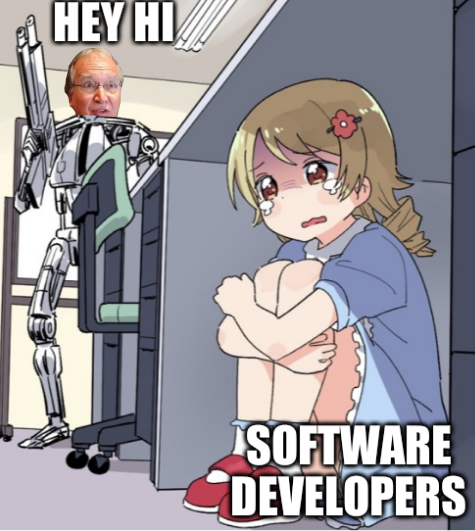

THE MANAGEMENT of the European Patent Office (EPO) -- from Brimelow to Campinos (and the one in the middle) -- loves to pretend that it is OK to grant patents on algorithms. Similarly, Iancu at the USPTO pretends he can ignore 35 U.S.C. ۤ 101 by cherry-picking court cases. These are issues we've long covered here. It's nothing new. At the end what matters is the courts' determination, albeit not every party -- especially small defendant (party being accused) -- can afford a court battle, so many would settle over assertion of totally bogus software patents. Again, this is hardly a new problem. So it is very important to ensure such patents never get granted in the first place.
"Before the weekend we also saw Jones Day's Stefan Schneider, Jakob Guhn, Emily J. Tait, Andrea Weiss Jeffries and Andreas Holzwarth-Rochford leveraging "HEY HI" (AI), a nonsensical and reborn buzzword, to promote illegal patents on software."The EPO has been doing lots of advocacy of illegal software patents this month; it's really blatant and routine, though they've come up with a bunch of new buzzwords and fluff. Now they add "digi" to everything. Before the weekend we also saw Jones Day's Stefan Schneider, Jakob Guhn, Emily J. Tait, Andrea Weiss Jeffries and Andreas Holzwarth-Rochford leveraging "HEY HI" (AI), a nonsensical and reborn buzzword, to promote illegal patents on software. Jones Day is a very large law firm, so reposing its nonsense ("IP Protection of Artificial Intelligence in Europe") in other sites like Lexology is probably pocket change to them. Here's what they wrote:
Business value may therefore be found in protecting (i) AI models and/or algorithms; (ii) software in which the models/algorithmsare embedded; (iii) training, evaluation and/or optimization strategies; (iv) training data; and (v) result data (i.e.work product). IP protection may be sought for all or a subset of these potential assets.
While copyright essentially only protects source code written by a programmer, further IP rights suitable for other aspects of an AI innovation are discussed below.
Patents provide a mechanism for excluding other businesses from creating, using and selling patented technologies. This allows businesses to gain or maintain market share and protect the investments made into research and development. Patents ensure a competitive advantage and are used as a tool in negotiations.
Each development strategy should take into account whether patent protection is available for innovations in basic technologies. Competitors may have their own patents or be undergoing patent proceedings (in such cases we suggest carrying out a patent search). Obtaining patent protection is a lengthy and costly process in comparison with other intellectual property rights. However, there are international agreements which allow postponing expenses but guarantee early commencement of protection for important innovations. Considering Fintech's rapid pace of development, obtaining early protection is crucial due to the nature of the patent system, in which the date of filing the application has great significance.
"This is typical waffle from law firms trying to persuade potential/prospective clients to pursue patents court would reject anyway."We'd like to remind readers that we do not oppose patents but the cheapening of patents, or the sick mindset which says, "let's patent anything in existence!"
This relies on the ludicrous philosophy that society would be better off with everything as a monopoly. Team UPC is looking to extend these monopolies globally, even past language and border barriers.
The other day we saw this press release [1, 2] that said: "Medicortex Finland Oy, an innovative biopharmaceutical company focused on the development of diagnostics and drug treatment for mild traumatic brain injury (TBI), today announced that the European Patent Office (EPO) has issued a patent covering company’s new diagnostic kit technology."
"We need a policy that favours science and scientists, not law firms."Those are physical diagnostic kits "for detection of concussion and mild traumatic brain injury from urine or saliva."
Those patents aren't on algorithms and are based on biomarkers; we aren't against European Patents but against the unacceptable status quo, where the EPC is violated with impunity and while Europe experiences a plague the EPO looks to justify those violations. The above law firms are fully on board as it would mean more income for them (and we know at whose expense). We need a policy that favours science and scientists, not law firms. ⬆